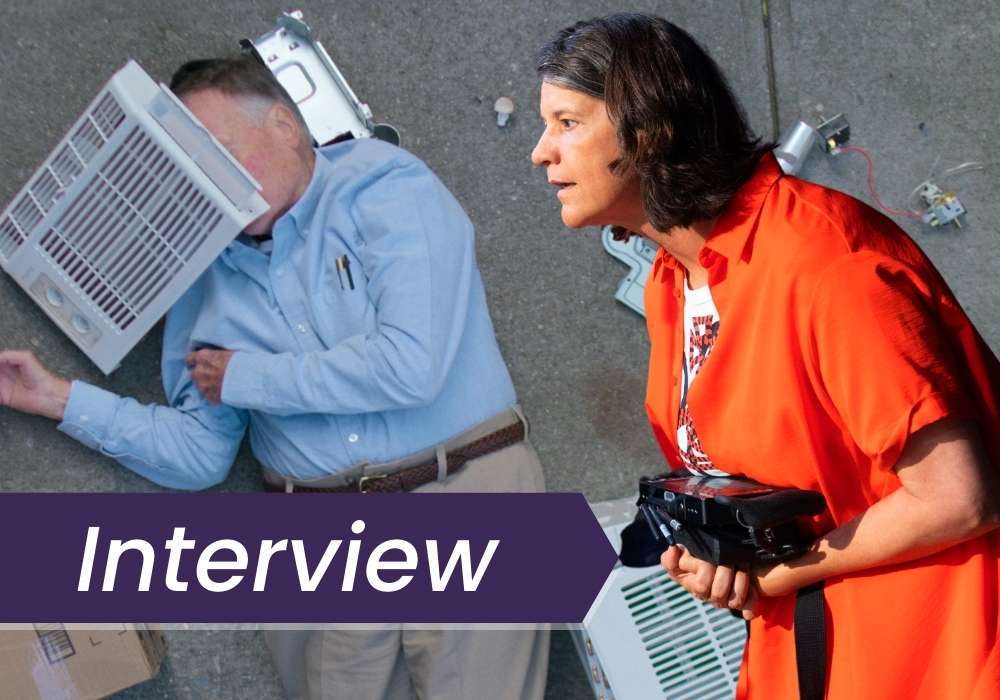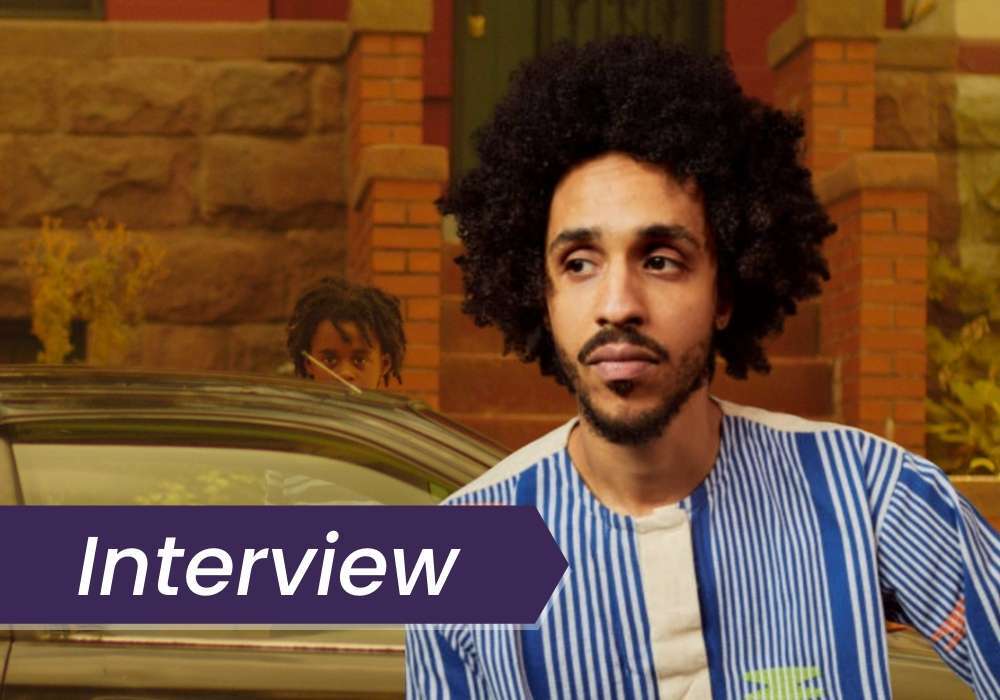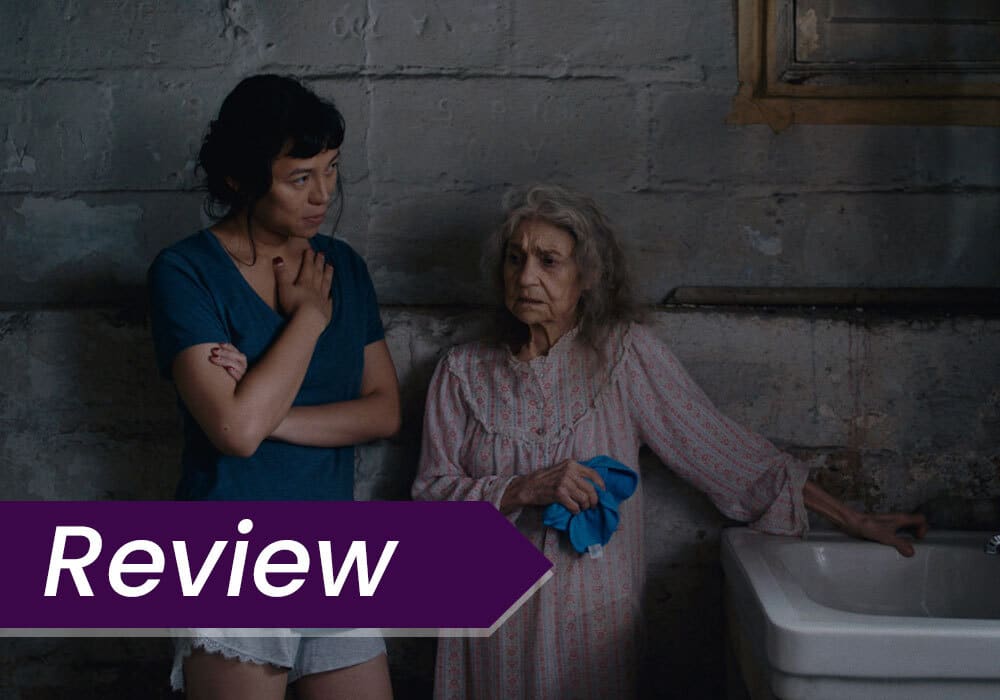Radha Blank wrote, directed, and stars in The Forty-Year-Old Version, a hilarious comedy about the struggle to stay true to your voice as a marginalized creator while also getting paid. The film is now on Netflix worldwide.
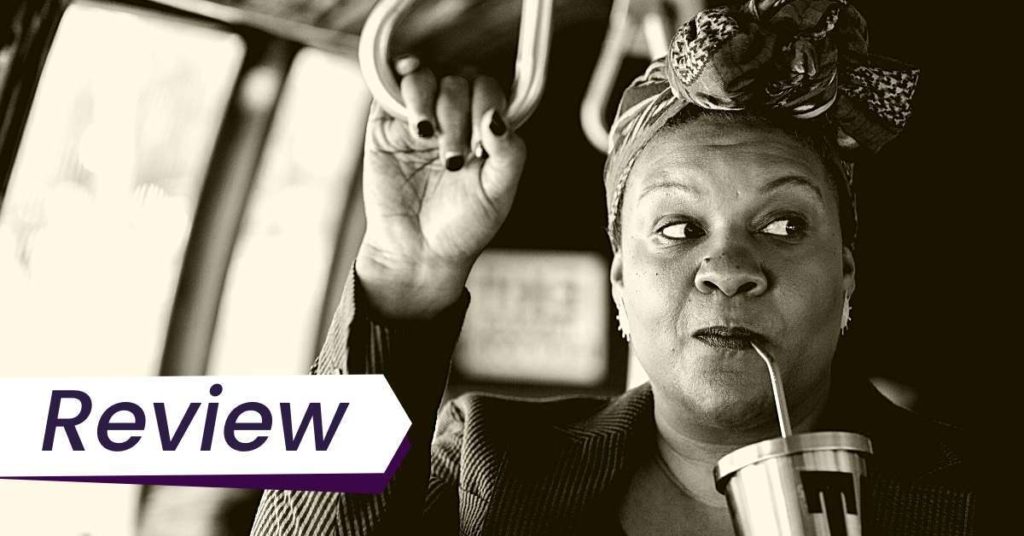
I knew The Forty-Year-Old Version would avoid tiresome cinematic cliches about middle-aged women from its opening moments. Radha (writer-director-star Radha Blank playing a version of herself) wanders her Harlem apartment and hears her neighbours having sex through the thin walls. We’ve seen this scene a million times in film: a cranky spinster yelling “Keep it down!” because she’s secretly bitter that she’s no longer young and virile. But instead, Radha leans her ear to the wall and gets off to the sounds of moaning. Blank immediately asserts that being a woman approaching 40 by no means diminishes your libido; nor, she goes on explore, does it mean you’ve got nothing left to say.
The funny, smart, wildly entertaining The Forty-Year-Old Version is among other things, an exploration of how difficult it is for a marginalised creator to be authentic to their own voice and get paid. Blank, a playwright herself, writes the on-screen Radha as a playwright living in Harlem who won a 30 Under 30 award 10 years ago and now struggles to catch a break. She’s torn about the fate of her new play, Harlem Ave: either keep it in limbo at a small, underfunded Black-owned theatre, or sell out to big Broadway producer Josh Whitman (Reed Birney), who wants to sanitise the play for white audiences.
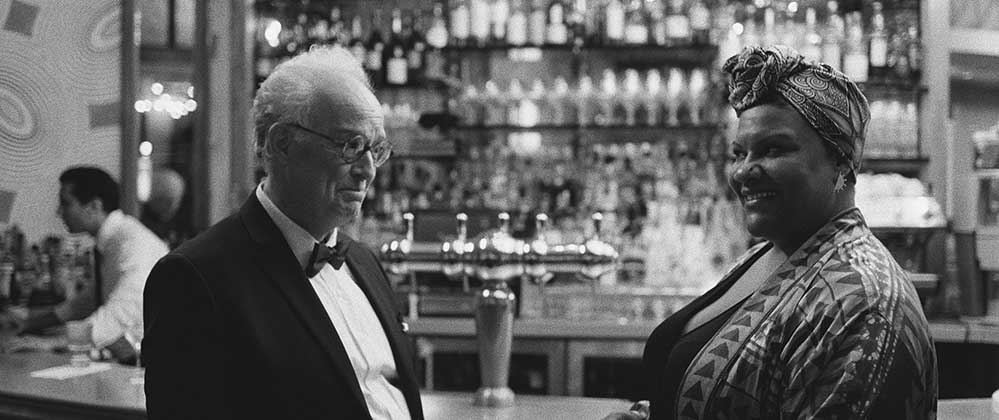
Radha’s constant jokes at Whitman’s expense tell us just how much she hates Whitman’s ignorant comments. She smiles and grits her teeth through his suggestions that she should add a white protagonist or sprinkle in some violence to make the play more “authentic” to the Black experience. But Whitman’s funding is the only route Radha can find to get her play staged in an industry with as many gatekeepers as New York theatre. Why then, Blank asks, should a fresh and exciting talent like Radha continue to struggle in the exclusionary artform of theatre when the more accessible art of rap music allows her to express herself without permission?
When I heard that The Forty-Year-Old Version was about a 40-year-old woman who turns to rap music in her midlife crisis, I was worried. It’s hard to conceive of a film that treats a middle-aged woman in hip hop seriously because it’s something we’ve rarely seen before. But while the people in Radha’s life mock her for adopting the rap alter ego RadhaMUSPrime, the film itself never does. In fact, when she follows an online ad to the dingy apartment of DJ D (Oswin Benjamin) to use his recording equipment, her lyrics and delivery are electric. D is captivated because Radha’s lyrics about artistic compromise and being a middle-aged woman are so much more interesting than the twentysomething men he usually DJs for. Radha’s midlife crisis is not a silly misstep but an actual artistic breakthrough.
But Radha is all too quick to self-sabotage; her confidence in herself has been damaged by a decade of being shunned by the theatre industry, coupled with the world in general telling her that her perspective isn’t valued. The line between a friend giving advice and a gatekeeper pushing their own agenda is thin, and so Radha tends to take both as a sign to get annoyed, stop listening, or give up. That becomes extra complicated when her childhood best friend, Archie (Peter Kim), is also her manager, and Radha has difficulty separating his professional concerns from her personal relationship with him. When she botches her first live rap performance — thanks to nerves combined with an ill-advised drag of a joint before the show — she immediately decides to quit rapping, despite D’s encouragement. While Radha has so much to say with her art, she’s all too quick to give up since she’s been burned before.
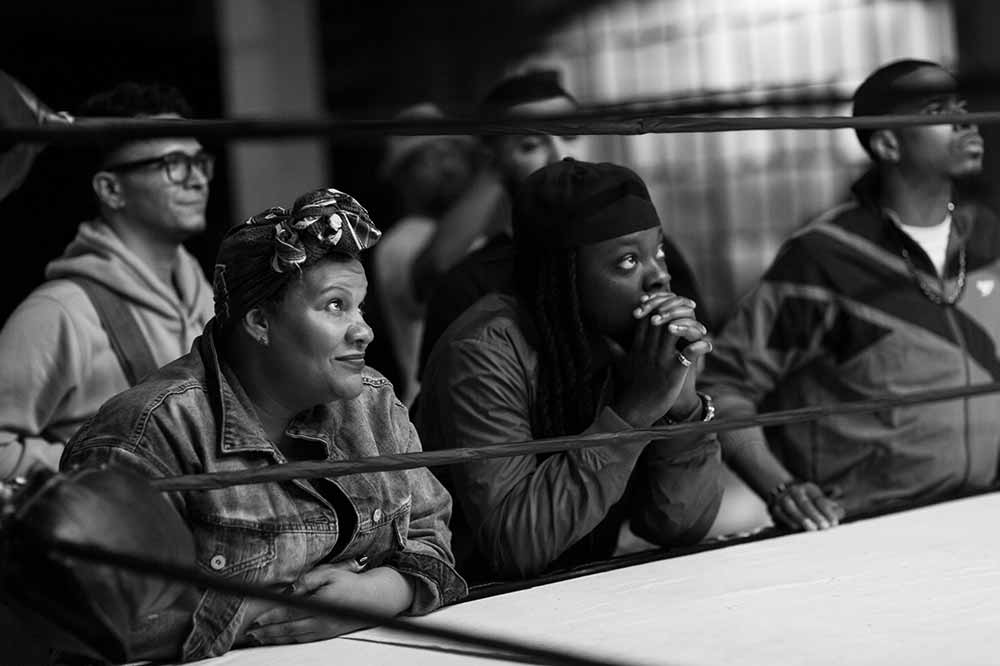
However, the film is hopeful in how other Black female artists inspire Radha. Radha’s parents were artists — her mother an artist, her father a jazz drummer — and it’s evident how much her late mother meant to her by how she avoids clearing out her stuff long after death. In one of the most uplifting scenes of the film, D takes Radha to a boxing ring in the Bronx to watch a late night rap battle between a series of incredible female rappers. Blank’s camera looks up at the rappers in wonder just as Radha does and follows their movement around the ring with kinetic energy; the reverse shots of Radha’s awed expression tells us just how much this spectacle means to her. Seeing other women of colour excel at rap and be celebrated by an eager crowd makes Radha reconsider whether she can succeed in this space.
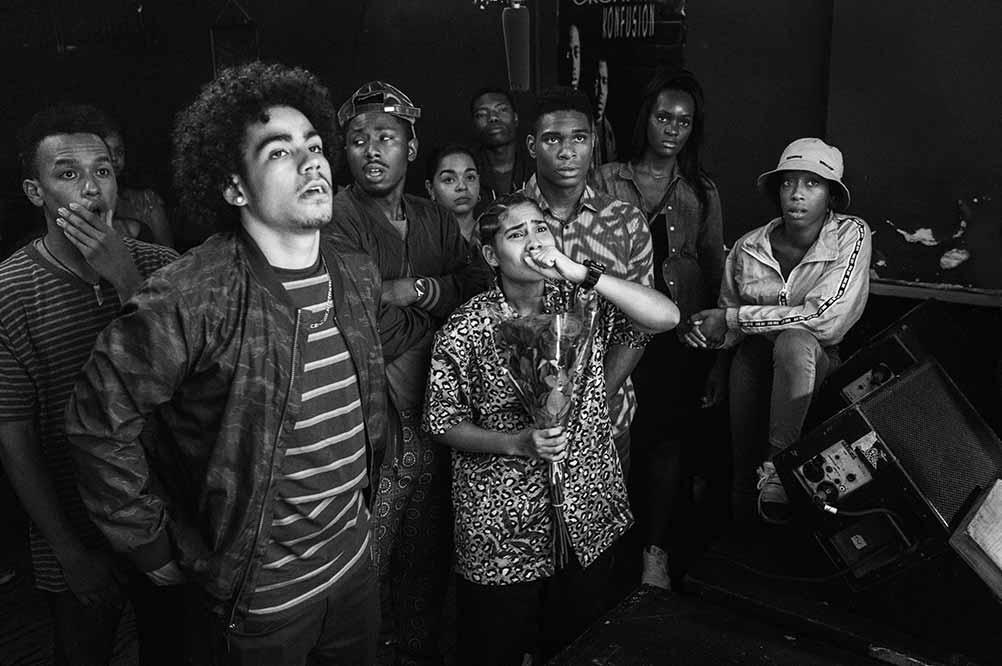
Conversely, although Radha struggles to find artistic and financial fulfillment, her attempts become an inspiration to the younger generation in a way that even she doesn’t quite realise. To earn a living, Radha teaches English and drama to a small group of high school kids, with whom she enjoys a jovial relationship, even when her investment in teaching wanes because she’s so caught up in her own shit. Radha’s students range in their enthusiasm: Rosa (Haskiri Velazquez) openly adores Radha, whereas the withdrawn Elaine (Imani Lewis) is reluctant to admit how much Radha’s classes mean to her. But every one of Radha’s students are invested in her success and see her as a trailblazer, whether she’s selling out by staging her play with Whitman or rapping in a club (the students manage to sneak their way into both events).
The Forty-Year-Old Version is an utter delight throughout, from Radha’s genuinely compelling rhymes to the hilarious jabs in the script at New York theatre culture. Rich white theatre patrons discussing a “multi-racial revival of Fences,” “Harriet Tubman musicals,” and “an all-male version of Steel Magnolias” are hilarious jabs at privileged theatremakers who see race and gender as marketing tools without actually caring about the lived experience of those groups. The Forty-Year-Old Version is the perfect balm to that kind of pandering art. It’s a vibrant, fun, funny, film that gave me hope that, at least in film, there is a route for an artist like Blank to get her work financed without compromising her voice.
The Forty-Year-Old Version is now on Netflix worldwide.
